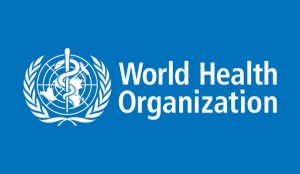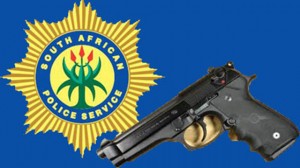The Government of the Democratic Republic of the Congo declared a new
outbreak of Ebola virus disease (EVD) in Bikoro in Equateur Province
today (8 May). The outbreak declaration occurred after laboratory
results confirmed two cases of EVD.
The Ministry of Health of Democratic of the Congo (DRC) informed WHO
that two out of five samples collected from five patients tested
positive for EVD at the Institut National de Recherche Biomédicale
(INRB) in Kinshasa. More specimens are being collected for testing.
WHO is working closely with the Government of the DRC to rapidly scale
up its operations and mobilize health partners using the model of a
successful response to a similar EVD outbreak in 2017.
“Our top priority is to get to Bikoro to work alongside the Government
of the Democratic Republic of the Congo and partners to reduce the loss
of life and suffering related to this new Ebola virus disease outbreak,”
said Dr Peter Salama, WHO Deputy Director-General, Emergency
Preparedness and Response. “Working with partners and responding early
and in a coordinated way will be vital to containing this deadly
disease.”
The first multidisciplinary team comprised of experts from WHO,
Médecins Sans Frontières and Provincial Division of Health travelled
today to Bikoro to strengthen coordination and investigations.
Bikoro is situated in Equateur Province on the shores of Lake Tumba in
the north-western part of the country near the Republic of the Congo.
All cases were reported from iIkoko Iponge health facility located
about 30 kilometres from Bikoro. Health facilities in Bikoro have very
limited functionality, and rely on international organizations to
provide supplies that frequently stock out.
“We know that addressing this outbreak will require a comprehensive and
coordinated response. WHO will work closely with health authorities and
partners to support the national response. We will gather more samples,
conduct contact tracing, engage the communities with messages on
prevention and control, and put in place methods for improving data
collection and sharing,” said Dr Matshidiso Moeti, the WHO Regional
Director for Africa.
This is DRC’s ninth outbreak of EVD since the discovery of the virus in
the country in 1976. In the past five weeks, there have been 21
suspected viral haemorrhagic fever in and around the iIkoko Iponge,
including 17 deaths.
“WHO is closely working with other partners, including Médecins Sans
Frontières, to ensure a strong, response to support the Government of
the Democratic Republic of the Congo to prevent and control the
spreading of the disease from the epicentre of iIkoko Iponge Health
Zone to save lives,” said Dr Allarangar Yokouide, WHO Representative in
the DRC.
Upon learning about the laboratory results today, WHO set up its
Incident Management System to fully dedicate staff and resources across
the organization to the response. WHO plans to deploy epidemiologists,
logisticians, clinicians, infection prevention and control experts,
risk communications experts and vaccination support teams in the coming
days. WHO will also be determining supply needs and help fill gaps,
such as for Personal Protective Equipment (PPE). WHO has also alerted
neighbouring countries.
WHO released US$ 1 million from its Contingency Fund for Emergencies to
support response activities for the next three months with the goal of
stopping the spread of Ebola to surrounding provinces and countries.
Building on the 2017 response
Ebola is endemic to the Democratic Republic of the Congo. The last
Ebola outbreak in the Democratic Republic of the Congo occurred in 2017
in Likati Health Zone, Bas Uele Province, in the northern part of the
country and was quickly contained thanks to joint efforts by the
Government of DRC, WHO and many different partners.
An effective response to the 2017 EVD outbreak was achieved through the
timely alert by local authorities of suspect cases, immediate testing
of blood samples due to strengthened national laboratory capacity, the
early announcement of the outbreak by the government, rapid response
activities by local and national health authorities with the robust
support of international partners, and speedy access to flexible
funding.
Coordination support on the ground by WHO was critical and an Incident
Management System was set up within 24 hours of the outbreak being
announced. WHO deployed more than 50 experts to work closely with
government and partners.
The Ebola virus causes an acute, serious illness which is often fatal
if untreated. The average EVD case fatality rate is around 50%. The
virus is transmitted to people from wild animals and spreads in the
human population through human-to-human transmission.







